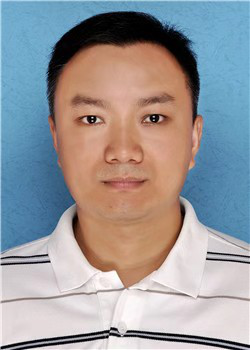Invited-Speakers
Keynote Speaker

Ph.D.Hamido FUJITA
Director of Intelligent Software Systems Iwate Prefectural University, Japan
He is professor at Iwate Prefectural University (IPU), Iwate, Japan, as a director of Intelligent Software Systems. He is the Editor-in-Chief of Knowledge-Based Systems, Elsevier of impact factor (5.101) for 2018. He received Doctor Honoris Causa from O’buda University in 2013 and also from Timisoara Technical University in 2018, and a title of Honorary Professor from O’buda University, Budapest, Hungary in 2011. He received honorary scholar award from University of Technology Sydney, Australia on 2012. He is Adjunct professor to Stockholm University, Sweden, University of Technology Sydney, National Taiwan Ocean University and others. He has supervised PhD students jointly with University of Laval, Quebec, Canada; University of Technology, Sydney, Australia; Oregon State University (Corvallis), University of Paris 1 Pantheon-Sorbonne, France and University of Genoa, Italy. He has four international Patents in Software System and Several research projects with Japanese industry and partners. He is vice president of International Society of Applied Intelligence, and Co-Editor in Chief of Applied Intelligence Journal, (Springer). He has given many keynotes in many prestigious international conferences on intelligent system and subjective intelligence. He headed a number of projects including Intelligent HCI, a project related to Mental Cloning as an intelligent user interface between human user and computers and SCOPE project on Virtual Doctor Systems for medical applications.
Title of the Talk:New Challenges in Machine Learning: Multiclass-Classification for Risk Predictions in Health Care Applications
Abstract:
Discovering patterns from big data attracts a lot of attention due to its importance in discovering accurate patterns and features that are used in predictions of decision making.
The challenges in big data analytics are the high dimensionality and complexity in data representation analytics especially for on-line feature selection. Granular computing and feature selection on data streams are among the challenge to deal with big data analytics that is used for Decision making. We will discuss these challenges in this talk and provide new projection on ensemble deep learning techniques for on-line health care risk prediction. Different type of data (time series, linguistic values, interval data, etc.) imposes some difficulties to data analytics due to preprocessing and normalization processes which are expensive and difficult when data sets are raw, or imbalanced. We will highlight these issues through project applied to health-care for elderly, by merging heterogeneous metrics from multi-sensing environment providing health care predictions assisting active aging at home. We have utilized ensemble learning as multi-classification techniques on multi-data streams using incremental learning to update data change “concept drift“
Subjectivity (i.e., service personalization) would be examined based on correlations between different contextual structures that are reflecting the framework of personal context, for example in nearest neighbor based correlation analysis fashion. Some of the attributes incompleteness also may lead to affect the approximation accuracy. I present deep learning feature selection in medical application early predictions (heart diseases and others).

Ph.D.Gang Sun
University of Electronic Science and Technology of China (UESTC)
Gang Sun received his Ph.D. from the University of Electronic Science and Technology of China (UESTC). He is currently an associate professor at UESTC. His research interests include network virtualization, cloud computing, high performance computing, parallel and distributed systems, Internet of Things, information and cyber security. He has published extensively in these areas, with 110+ technical publications including papers in refereed journals and conferences, invited papers and presentations and book chapters. He has also edited special issues at top journals, such as Future Generation Computer Systems and Multimedia Tool and Applications. He has served as reviewers of IEEE Transactions on Industrial Informatics, IEEE Wireless Communications Magazine, IEEE Internet of Things Journal, IEEE/ACM Transactions on Networking, IEEE Transactions on Network and Service Management, IEEE Communications Letters, Information Fusion, Future Generation Computer Systems, Journal of Network and Computer Applications, Computer Networks, et al.


